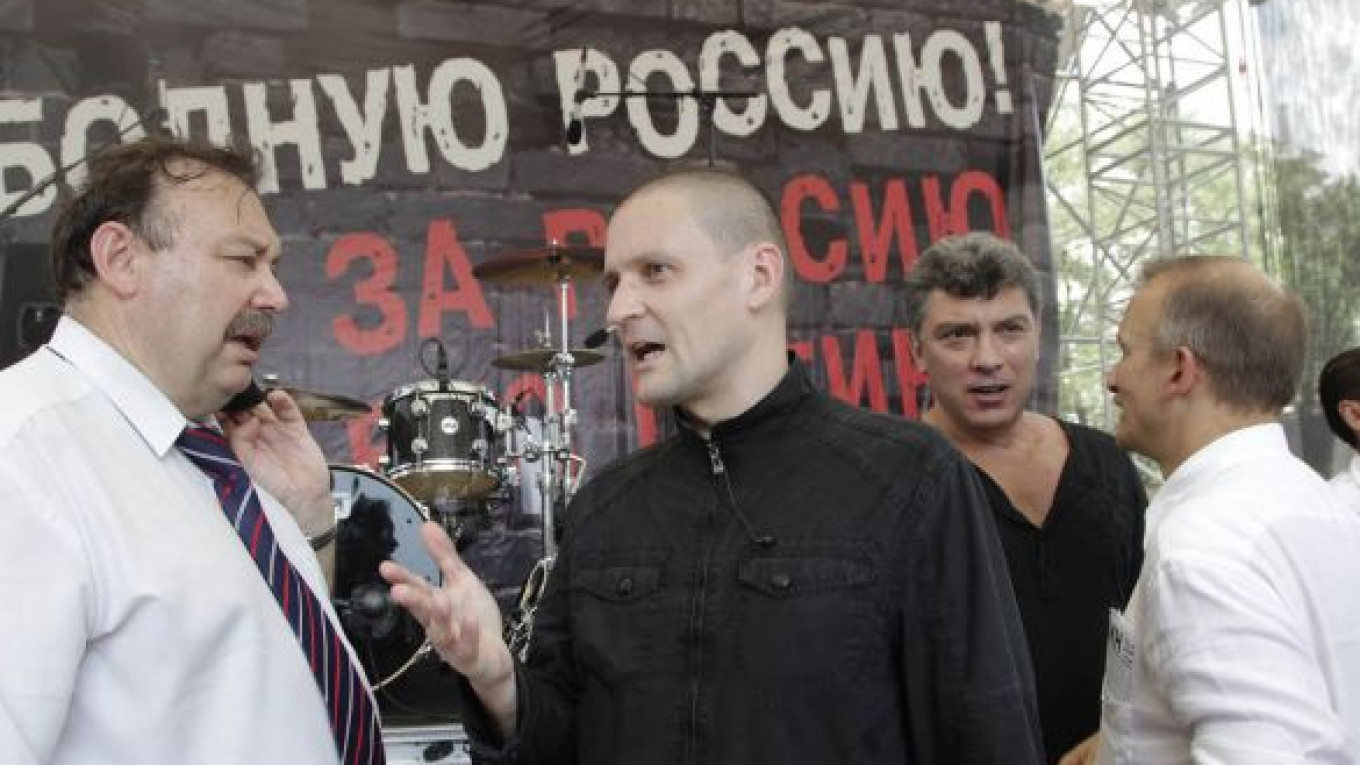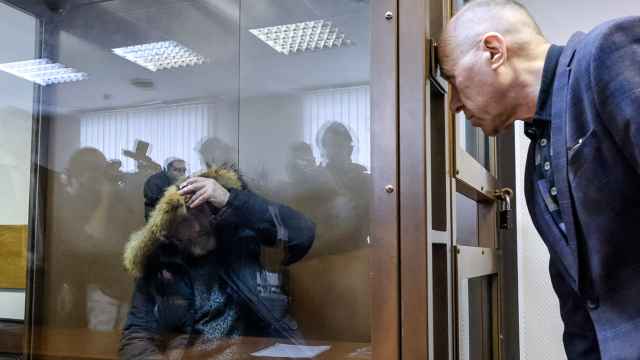Gennady Gudkov, the opposition leader and State Duma deputy, said Thursday that he had been forced to sell his private security company "for a song" after coming under Kremlin pressure.
Gudkov's sale of Oskord, whose clients include IKEA, Shell and DHL, could prompt new worries among foreign investors about the rule of law and state interference in the economy, issues that President Vladimir Putin offered reassurances on as recently as last week by, among other things, appointing an ombudsman to protect investors' rights.
Gudkov, a member of the A Just Russia party, has supported the opposition protests that erupted after disputed Duma elections in December, attending them and supplying 10 guards to provide security at each.
But on May 13, a week after protests spoiled Putin's inauguration, police targeted Oskord with a raid on one of its subsidiaries, and they haven't let up the pressure since.
"Up until the last moment I had hoped that I would be able to preserve Oskord and most of the business holding and provide jobs to people," Gudkov on his LiveJournal blog. "But it has become clear that the police are continuing to systematically destroy a successfully run business with a long history and great achievements."
Gudkov said he sold his business on Thursday "for a song" to Ares, a St. Petersburg-based private security company whose professionalism he described as similar to Oskord. He said the combined company would be the largest of its type in Russia, with more than 6,500 employees.
Ares paid several hundred thousand rubles for Oskord, Gudkov later told Interfax.
"I have had to leave the business because of a crackdown in connection with my political views," he said on his blog.
He insisted that he would not change his views.
An IKEA executive, speaking by telephone shortly before Gudkov announced the sale, insisted that the Swedish furniture giant would not switch private security companies despite the escalating pressure from police.
Gudkov's story bears a resemblance to that of other businesspeople who have engaged in anti-Kremlin politics and were forced to sell their business or saw them taken over by the state, most notably former Yukos CEO Mikhail Khodorkovsky.
The authorities are trying to cut Gudkov's income because of his political activities, said Andrei Soldatov, a security services expert.
"They are trying to weaken the protest organizers," he said.
Vladimir Milov, an opposition politician, said Gudkov should have tried to better safeguard his business before going into politics. "This kind of business is completely dependant on the government and can be stopped in a moment," Milov said.
Milov, a former deputy energy minister, said all his contacts with state-owned energy companies were stopped soon after he joined the opposition.
Gudkov, who founded Oskord in 1992 after leaving the KGB, turned ownership of the company over to his wife when he was first elected to the Duma in 2001.
Putin promised investors at the St. Petersburg International Economic Forum last week that private businesses, which often complain of interference from the authorities and a lack of independent courts, would be able to find refuge in the new ombudsman, Boris Titov.
Titov declined through a spokeswoman to comment Thursday on the Gudkov case because Putin has yet to sign the decree creating the office of ombudsman.
But a lawyer working for a major Western company predicted that the affair would not affect the investment climate too seriously because the company was not big on the market.
"If it were big, then it would be a different case," he said, speaking on condition of anonymity given the sensitivity of the case.
Gudkov said that about 2,500 employees are now employed by Oskord.
Representatives for Ares could not be immediately reached for comment. The company, headed by Alexander Khristenko, was founded in 1994 by Yevgeny Ulin, a former KGB foreign intelligence official, and its clients range from international giant Philip Morris, to state-owned Gazprom Neft and Russian Railways.
Ulin might have crossed paths with Gudkov, as both trained at the Andropov Institute of the KGB outside Moscow.
Among the latest blows against Gudkov, the Investigative Committee announced this week that it would conduct a check into a complaint by Bulgarian citizen Ivailo Zartov that Gudkov had invested money into a Bulgarian company to avoid taxes in Russia.
Gudkov dismissed his allegations, saying Zartov had asked him to facilitate business contacts with Russian investors but had turned out to be a swindler.
Staff writer Alexander Winning contributed to this report.
A Message from The Moscow Times:
Dear readers,
We are facing unprecedented challenges. Russia's Prosecutor General's Office has designated The Moscow Times as an "undesirable" organization, criminalizing our work and putting our staff at risk of prosecution. This follows our earlier unjust labeling as a "foreign agent."
These actions are direct attempts to silence independent journalism in Russia. The authorities claim our work "discredits the decisions of the Russian leadership." We see things differently: we strive to provide accurate, unbiased reporting on Russia.
We, the journalists of The Moscow Times, refuse to be silenced. But to continue our work, we need your help.
Your support, no matter how small, makes a world of difference. If you can, please support us monthly starting from just $2. It's quick to set up, and every contribution makes a significant impact.
By supporting The Moscow Times, you're defending open, independent journalism in the face of repression. Thank you for standing with us.
Remind me later.






